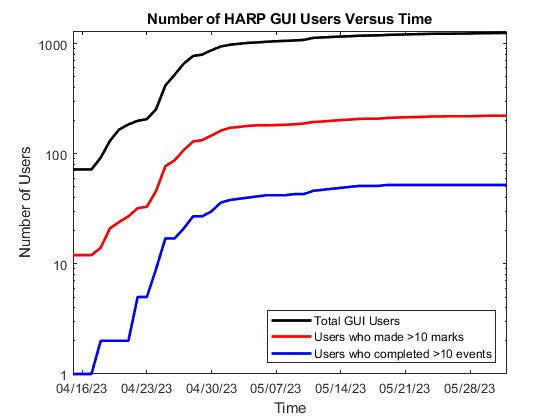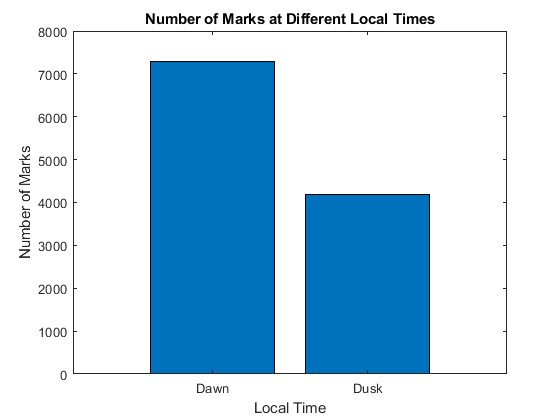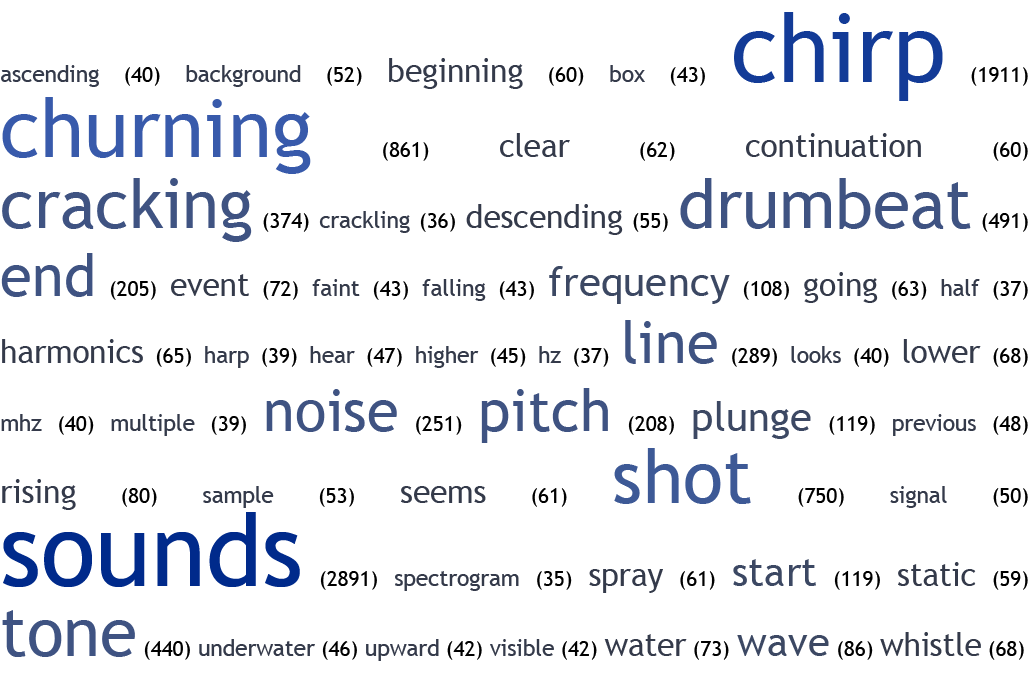News and Results
HARP in the News
- NASA, 'Help Discover the Sounds of Space Played by NASA’s HARP'
- The Washington Post, 'Want to listen to space noise? NASA wants to hear from you.'
- NPR, 'From 'Short Wave': magnetosphere music, Jupiter's icy moons and a runaway black hole'
- itvX, 'Listen to the never before heard 'solar song' of the Northern Lights'
- KCRW, 'NASA and UCLA want you to help identify the sounds of space'
- Eos., 'Eavesdropping on the Vibrations of Earth’s Magnetic Bubble'
- BBC, BBC today interview with Martin Archer, 53 minutes in
- NASA's Curious Universe podcast, 'Hum of the Sun'
Research Results
Users
Event Views
Event Marks
We’ll be updating this section with new results in the coming months. Here’s a first look at some high-level results as of June 1, 2023.
First, let’s look at trends in the number of new HARP volunteers as of June 1, 2023. Thanks to all HARP volunteers for your hard work!

Second, let’s compare HARP volunteer results to past work. Past studies based on a single scientist’s visual analysis or automated computer techniques generally found that harp-like events were more likely to be observed when a satellite is at dawn local times, though there is disagreement on exactly how often the waves occur. Here, “dawn” means that if you were standing on the Earth’s surface somewhere where there’s a sunrise, the satellite would be flying over your head. HARP volunteers are finding a similar trend as past studies: more harp events at dawn. We’re still working on analyzing the wealth of data collected by HARP volunteers to learn more about this dawn-dusk asymmetry, how the wave properties change in different conditions, why past studies don’t always agree on wave occurrence rates…

Third, HARP volunteers have been discovering unexpected patterns in the data that are helping us learn more about how our magnetospheric harp changes in different conditions. Here’s a sound corresponding to a typical example of Earth’s magnetic harp (https://soundcloud.com/nasa/earths-magnetic-harp), much like the one included in our project’s training materials. Here’s an example of a unique “reverse” magnetic harp (https://soundcloud.com/nasa/earths-reverse-magnetospheric-harp) that our volunteers have been picking out. The latter goes against our general expectation that the pitch should decrease then increase as the satellite moves away from the Earth and then back towards the Earth (magnetic harp strings get longer and then shorter). We’re working on understanding what unique conditions lead to these types of events.
Finally, HARP volunteers have been providing a wealth of information in the form of written notes of their impressions of different events. These are helping us identify other unique events like the reverse magnetic harp. This word cloud gives a sampling of some of the most common words they’ve been using to describe harp events.

We’ve only started scratching the surface. Check back here later in 2024 for more results!